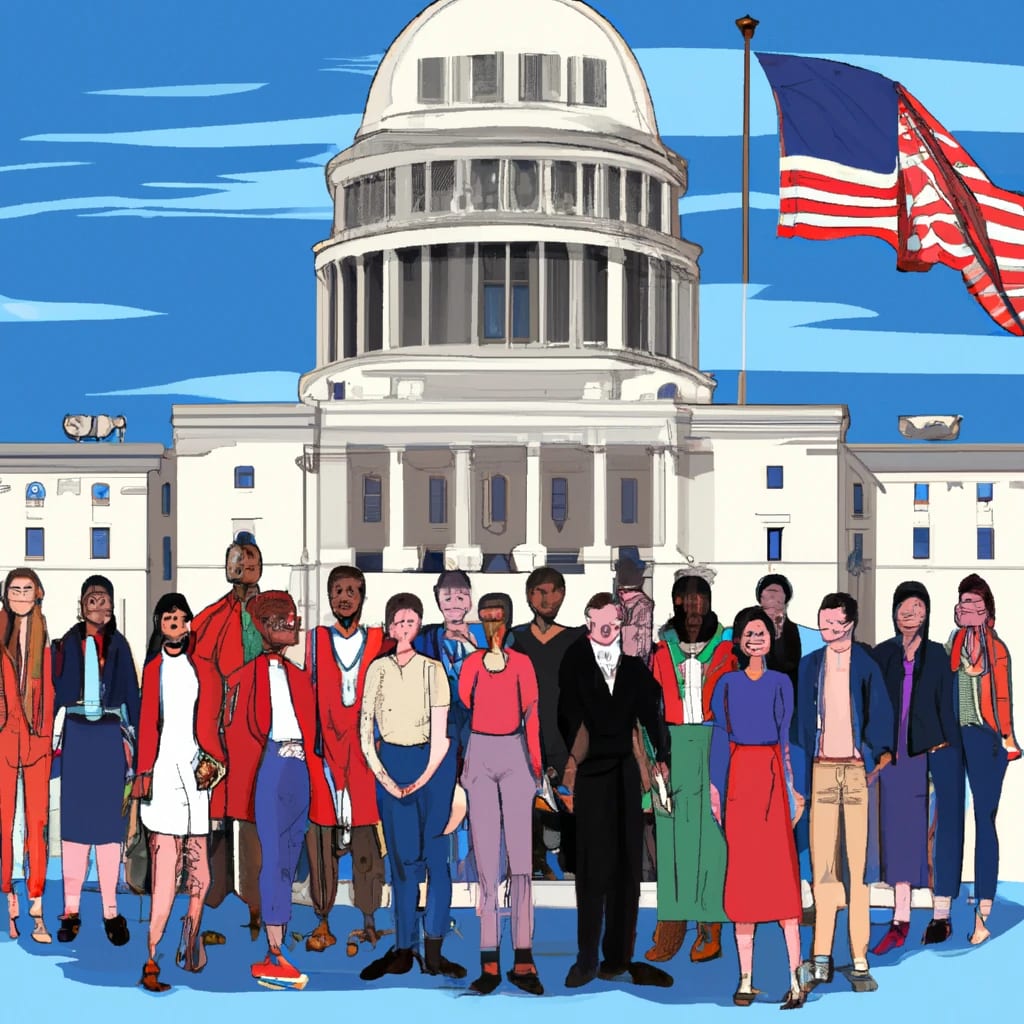Finding a Balance: The Debate Over Immigration Policies
Exploring the Arguments for More Open and More Restrictive Policies and the Importance of Balancing Economic Growth, Public Safety, and National Identity

Immigration policies have been a hotly debated topic in recent years, with arguments for both more open and more restrictive policies. Some argue that immigration is necessary for economic growth, cultural diversity, and humanitarian reasons, while others argue that immigration can lead to increased crime, strain on public services, and cultural clashes. In this article, we will examine both sides of the debate and explore whether immigration policies should be more open or more restrictive.
Arguments for More Open Immigration Policies
One of the main arguments for more open immigration policies is economic growth. Many businesses rely on immigrant labor, particularly in sectors such as agriculture, hospitality, and healthcare. Immigrants also contribute to the economy by starting their own businesses and creating jobs. A study by the National Foundation for American Policy found that immigrants were more than twice as likely as native-born Americans to start new businesses in the United States.
Another argument for more open immigration policies is cultural diversity. Immigrants bring a rich variety of cultural traditions, foods, and customs that can enrich the lives of those around them. Diversity can also foster innovation, as people from different backgrounds bring different perspectives and experiences to the table.
Finally, there is a humanitarian argument for more open immigration policies. Many people are forced to flee their home countries due to war, persecution, or other forms of violence. Allowing these individuals to seek refuge in other countries can be a matter of life and death.
Arguments for More Restrictive Immigration Policies
On the other hand, some argue that more restrictive immigration policies are necessary to protect the safety and well-being of the country and its citizens. One of the main concerns is the potential for increased crime. Critics of open immigration policies argue that allowing large numbers of immigrants into a country can lead to increased crime rates, as some immigrants may have criminal backgrounds or may be more likely to engage in criminal activity.
Another concern is the strain on public services. More immigrants means more demand for services such as healthcare, education, and social welfare programs. Critics argue that this can lead to increased costs and reduced quality of services, as resources are spread thin.
Finally, some argue that more restrictive immigration policies are necessary to preserve national identity and prevent cultural clashes. Critics of open immigration policies argue that allowing large numbers of immigrants from different cultural backgrounds can lead to tensions and conflicts, as different groups struggle to coexist and adapt to each other's cultural norms.
Balancing Economic Growth with Public Safety and National Identity
While there are valid arguments on both sides of the debate, the key is to find a balance between the economic benefits of immigration and the need to protect public safety and national identity. This can be achieved through a combination of policies that both encourage immigration and ensure that immigrants are integrated into society in a way that is safe and sustainable.
One possible approach is to prioritize skilled immigrants who can contribute to the economy and are less likely to rely on public services. This would involve setting up a merit-based system that prioritizes immigrants with skills that are in demand, such as doctors, engineers, and IT professionals. This would also involve ensuring that immigrants have access to education and training programs that can help them integrate into the workforce.
Another approach is to provide support for immigrants to help them integrate into society. This would involve providing language classes, cultural orientation, and support for finding housing and employment. This would help to ensure that immigrants are able to integrate into society in a way that is safe and sustainable, reducing the potential for cultural clashes and other conflicts.
Conclusion
In conclusion, the debate over immigration policies is complex and multifaceted. While there are valid arguments for both more open and more restrictive policies, the key is to find a balance between economic growth, public safety, and national identity. This can be achieved through a combination of policies that prioritize skilled immigrants, provide support for integration, and ensure that immigrants are vetted to ensure that they do not pose a threat to public safety. By taking a balanced approach to immigration policies, countries can reap the economic and cultural benefits of immigration while also ensuring that the safety and well-being of their citizens are protected.
It is also important to note that immigration policies are not just about the economic and social benefits of immigration, but also about upholding the principles of humanity and human rights. Countries have a responsibility to provide refuge for those who are fleeing war, persecution, and other forms of violence. Immigration policies should be designed with this in mind, ensuring that those who need protection are able to access it in a timely and safe manner.
Finally, it is important to acknowledge that immigration policies are not static and may need to be revised over time. As the economic, social, and political landscape changes, immigration policies must adapt to these changes in order to remain effective and relevant. This may involve revising quotas, adjusting eligibility criteria, or implementing new programs to support integration.





Comments
There are no comments for this story
Be the first to respond and start the conversation.